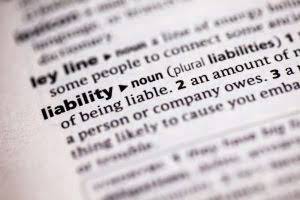
An outstanding check can also mean that a check was deposited at a bank but is still going through the process of clearing. This means it is en route to becoming available funds in the payee’s bank account, but it’s just not quite there yet. Outstanding checks also provide the opportunity for payment delays, which can be advantageous when it comes to managing cash flow. Even if the checkwriter has sufficient funds, any delay from the depositor simply means higher interest revenue on the capital balance waiting to be drawn down. The best way to keep track of outstanding checks is to regularly review your bank account statements and reconcile them with your checkbook or budgeting software. This will help you identify any discrepancies and ensure that all outstanding checks have been accounted for.
- Checks which have been written, but have not yet cleared the bank on which they were drawn.
- Alternative investments are often sold by prospectus that discloses all risks, fees, and expenses.
- Provided you maintain vigilance and embrace technology, you can handle outstanding checks with ease.
- Cash on hand is calculated by adding any interest earned and the total amount of notes receivable.
Ask Any Financial Question
Similarly, if a check is issued close to a bank’s cut-off time for processing checks, it may not be processed until the following business day. This delay can also lead to the check being labeled as outstanding, causing inconvenience for both the payer and the payee. Have you ever experienced the frustration of receiving an outstanding check due to insufficient funds? It can be quite a headache, especially when you were counting on that money. Understanding the reasons behind these checks can help shed some light on this issue.

Potential for Overdrafts and Insufficient Funds

You can also commit to growing https://www.bookstime.com/ your financial literacy by learning about more topics around bank accounts and payment. PNC has many useful articles to help you make the most of your money. The payor, or person with the checking account, writes a check to the person they want to pay in the payment amount. The payor gives it to the payee and notes the amount of that check as a “pending” payment until the check fully clears and the account balance is adjusted by the bank to account for the payment. Checks are simple financial tools that depend on both the payor and payee to take action to complete the payment. You can also call or write to remind the payee that the check is outstanding.
- The payee should contact the issuer to request a new check if this occurs.
- This can lead to an inaccurate recording of funds, causing checks to be labeled as outstanding even though there are sufficient funds in the account.
- This means that after five years, a vendor in my form, for example, must reveal to the state a check that has not been cleared by the bank on which it has been drawn.
- Once the check has been deposited or cashed by your vendor, your bank will debit your account and mark it as a cleared check on your next statement.
- She records the transaction in her accounting system by debiting rent expenses and crediting cash.
Financial Accounting
They are key components of transactions involving payments or transfers. Businesses must track outstanding items to avoid breaking unclaimed property laws. If payments to employees or vendors remain uncashed, they eventually must turn over those check status outstanding meaning assets to the state. This typically occurs after a few years, but timetables vary from state to state.
By keeping track of this information, individuals can easily identify which checks are outstanding and take appropriate action. During the communication process, it is important to keep a record of all correspondence. This includes noting down the date, time, and content of each interaction with the bank.
Resolving Outstanding Checks
If they do this in a timely manner, the check clears, and the payment gets transferred from the payor’s bank account to the payee’s bank account. When a business writes a check, it deducts the amount from the appropriate general ledger cash account. If the funds have not been withdrawn or cashed by the payee, the https://www.facebook.com/BooksTimeInc/ company’s bank account will be overstated and have a larger balance than the general ledger entry.
- It may be necessary to issue a new check without getting the old check back if the original check was lost or destroyed.
- • One of the major ones is that it bounces by the time an attempt is made to deposit it.
- Most banks will continue to honor checks for the full 180 days, but that isn’t guaranteed.
- This is very different than most other instant payment methods, which include ACH transfers, wire transfers, and even cryptocurrency.
- It’s designed to help non-residents with opening bank accounts at top financial institutions in the US.
In a bank reconciliation, what happens to the outstanding checks of the previous month?

As a result, the bank reconciliation for the current month will again show the outstanding check amount as a subtraction from the bank statement balance. It’s important to be aware of outstanding checks and to resolve them quickly. By keeping track of every check you write and regularly cross-checking your records with your bank statement, you can avoid unnecessary delays, fees, and other budget pitfalls. A well-managed bank account is a stepping stone toward a secure financial future. In some cases, outstanding checks can lead to legal action against the account holder. If a check remains unpaid for an extended period, the recipient may choose to take legal action to recover the funds.

What does it mean when a check says “void after 90 days”?
The difference between the balances of the cash book and bank statement caused by unpresented checks is only temporary. On 28 January 2019, the balance as per the cash book and bank statement amounts to $10,000. On the same day, a check of $7,000 is issued to a creditor, Mr. John, who presents the check to his bank on 2 February 2019. When a check is issued to a creditor or third party, it is immediately recorded in the bank column on the credit side of the cash book. If you wrote a check and it is still outstanding, you should consider contacting the recipient to confirm they received it.